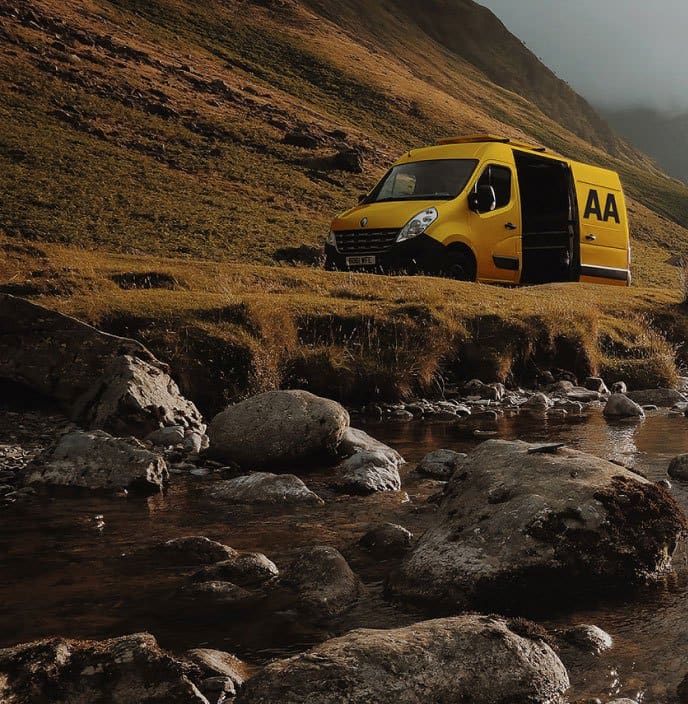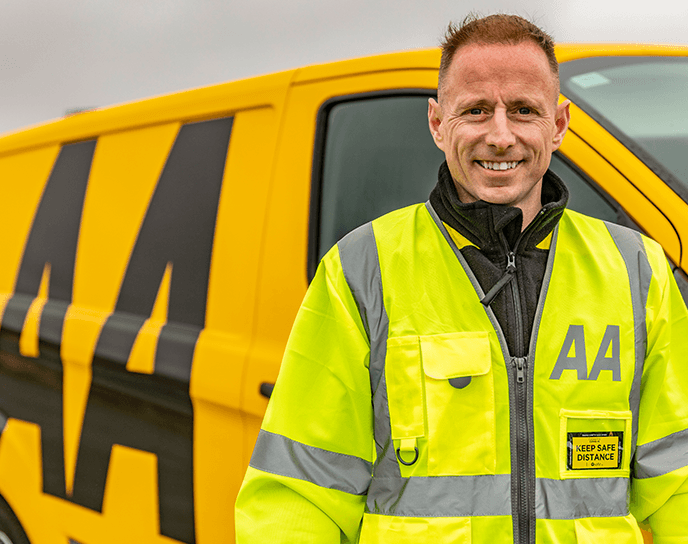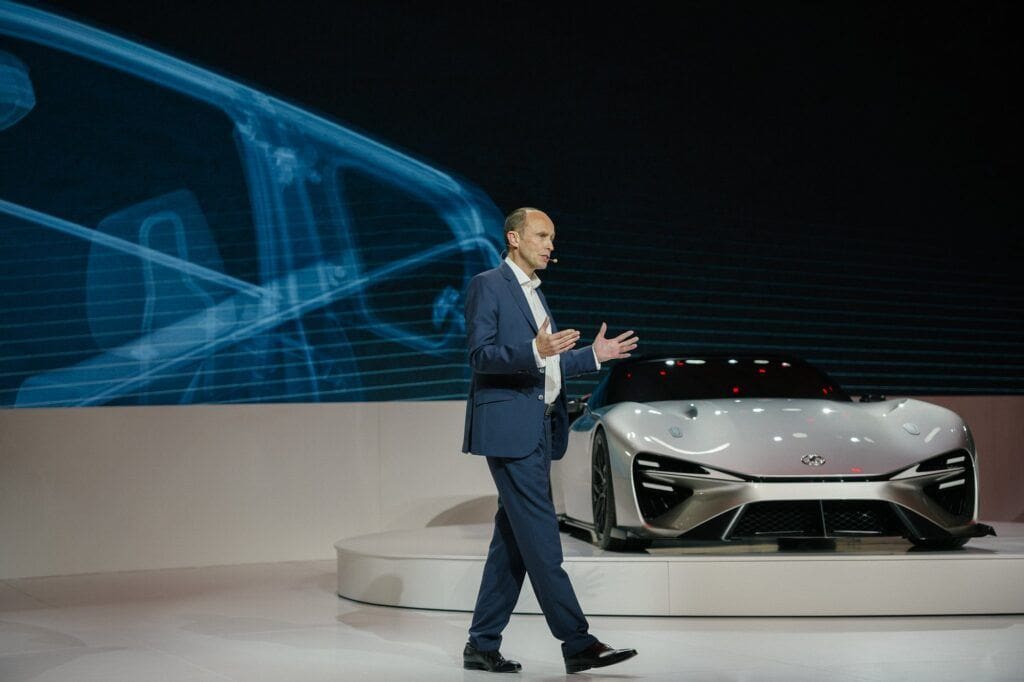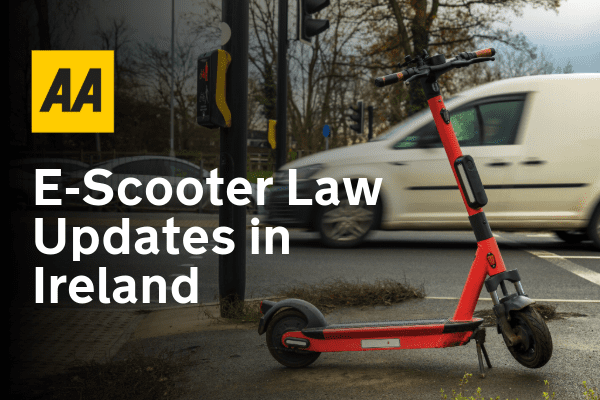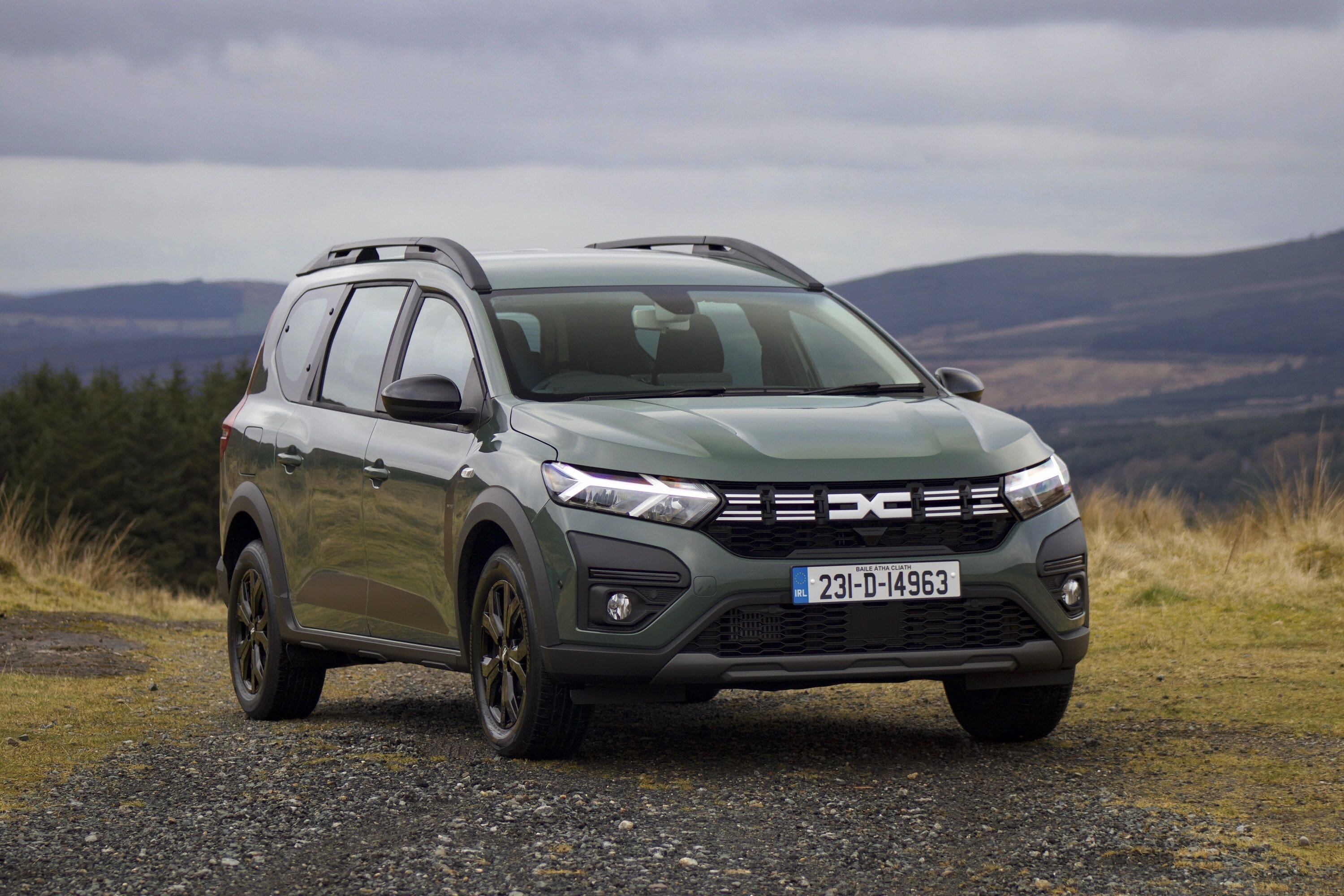At its recent “Kenshiki” event in Brussels, Toyota previewed its new model and technology plans for the coming years. Shane O’ Donoghue was there.
To kick off its “Kenshiki” preview event in Brussels, Toyota whipped the covers off a quartet of eye-catching cars, each capable of grabbing headlines in their own right. The electric Lexus supercar concept had been revealed before, but that didn’t dilute its visual impact. At the same time, the new Toyota Prius drove onto the stage under electric power to assume its position under the bright lights. Flanking these were two concept vehicles never seen outside the design studios of Toyota – the C-HR prologue and the bZ Compact SUV concept.
And yet, despite the presence of such newsworthy cars, the biggest stories of the event were told by the engineers and scientists in smaller presentations and interviews throughout the day as Toyota’s plans for the future, electric and otherwise, became clear.
Is Toyota going electric?
Of course, it is. That’s the simple answer. Some commentators have wondered what is taking Toyota so long to commit to an all-electric future at a time that many of its competitors have already done so. Toyota didn’t shy away from the question, confirming that the new bZ4X SUV is the first of seven fully-electric “bZ” (beyond Zero) vehicles on the way. Toyota Motor Europe is also targeting full carbon neutrality by 2040 – possibly sooner – with 50 per cent of sales by 2030 made up of zero-emissions vehicles.
The bZ Compact SUV concept previews the next of the production-ready bZ models. It is a sharply styled crossover of similar dimensions to the next-generation Toyota C-HR, which means it should sit below the bZ4X in the line-up.
Lexus will launch its RZ electric SUV later in 2023, built using the same underpinnings, while its electric UX, badged the “300e”, is coming in for an update this year, too. And that spectacular Electrified Sport concept car – nothing short of an electric supercar? There’s already a team working on a production version, with a 0-100km/h speed of about two seconds, drive-by-wire technology and maybe even a manual gearbox. You read that right.
Toyota confirmed that it is working hard on solving challenges in bringing more power-dense solid-state batteries to production, too. That would be to the benefit of all future Toyota and Lexus electric vehicles.
Interestingly, Dr Gill Pratt, Chief Scientist of Toyota Motor Corporation and CEO of Toyota Research Institute, told us that there is a wide gulf between the demand for lithium and its supply. He pointed out that the amount of time it takes to open an electric car battery factory is much shorter than the time it takes to get a new mine commissioned, and so there will be a mismatch for quite some time to come. Hence Toyota is not giving up on hybrid technology any time soon: “We must do what is best for the environment, which is to extract the most carbon reduction from each battery cell produced, replacing as many non-electrified vehicles as possible with electrified ones, guided by the simple principle that carbon is the enemy, not a particular powertrain.”
Is Hydrogen here to stay with Toyota?
Although hydrogen power wasn’t the primary focus of the Kenshiki event, Toyota and its personnel were content to discuss its plans. Though Toyota now believes that, in the medium term at least, hydrogen power is better suited to large applications, it isn’t ditching all its research on the fuel. Indeed, it revealed its latest hydrogen projects, including a Toyota Corolla Cross powered by a hydrogen-fuelled internal combustion engine. It said that it is “40 per cent along the path to commercialisation” of this technology and though Toyota also admitted that “is not yet possible to say if the technology will reach maturity for road cars”, it suggested that using hydrogen as a fuel in internal combustion engines has enormous potential in motorsport applications at the very least.
Meanwhile, Toyota continues to improve its hydrogen fuel cell technology, starting production of its second-generation modules in Brussels and using the same in a new project to create a prototype of the Toyota Hilux pickup powered by hydrogen.
Will Toyota stay with Hybrid?
A core message from Toyota at the Kenshiki event was its “multi-path” approach, and hybrid power will remain a foundation for that for a long time to come. Underlining this was the unveiling of the C-HR prologue, a stylised concept car previewing the look of the next generation of the popular crossover. Toyota confirmed that the next C-HR will be sold in regular hybrid and plug-in hybrid formats, though it’s not expected to go on sale until 2024.
Arriving sooner is the all-new Toyota Prius, the fifth iteration of the eco-focused hatchback. This time around, the Prius will be sold exclusively as a plug-in hybrid in Ireland, with an electric range of over 70 kilometres and significantly more power than before. It arrives this year and should help Toyota cement its elevated position in the Irish new car market.


